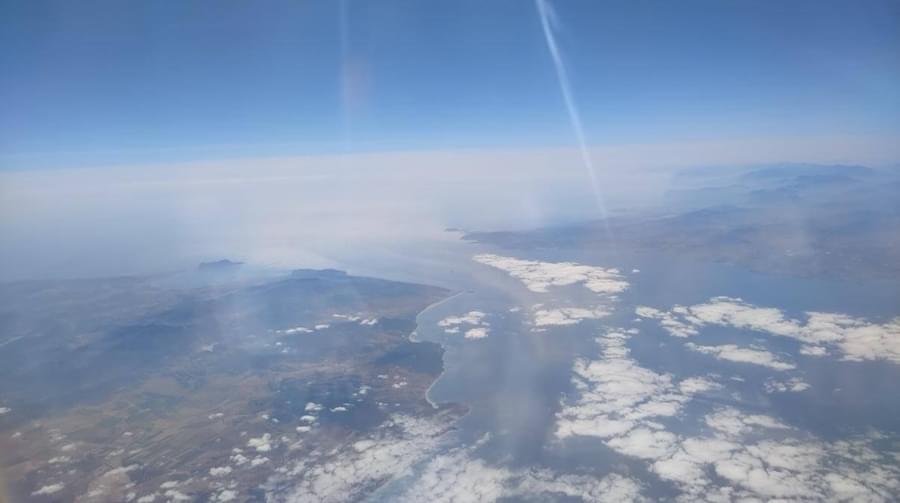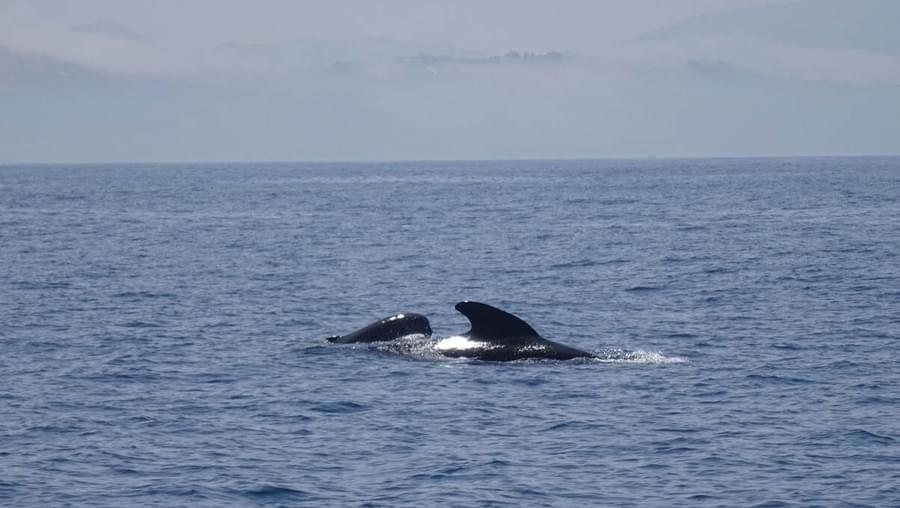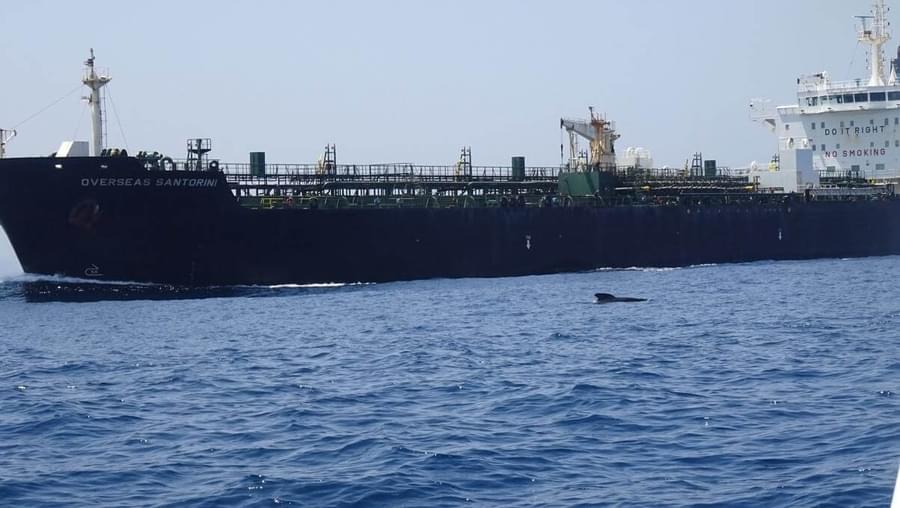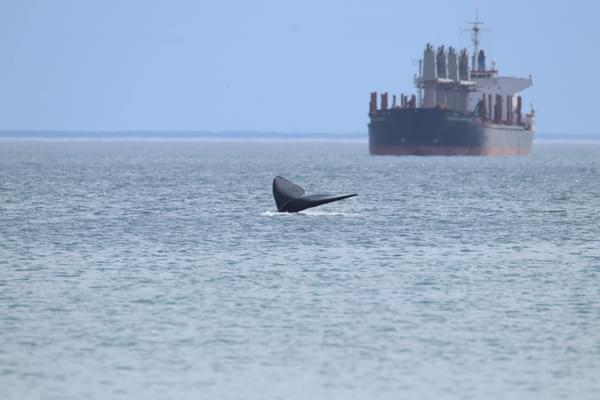Hello everyone, Ocean Conservationist Mônica here!
Recently I had the opportunity to explore the Strait of Gibraltar for the first time, and I'm excited to share my insights and experiences with you. At the end of July, I boarded the P&O Cruises Ventura in the Canary Islands for a nine-day cruise through the rich and biodiverse waters along the coasts of Africa, Spain, Portugal, and the UK.
One of the highlights of this journey was our day trip to Tarifa, a charming surf town located at the southernmost tip of mainland Spain, just 14 km from Africa. What separates the continents of Europe and Africa here is the Strait of Gibraltar, a unique location where the Atlantic Ocean meets the Mediterranean Sea, becoming an important corridor and migratory route for various species of birds, fish, and marine mammals.

The Atlantic Ocean's waters move into the Mediterranean Sea at the surface because they are less dense, while the Mediterranean's saltier and denser waters flow out to the Atlantic along the bottom, creating a dynamic environment that is crucial for maintaining the ecological balance of both seas and supports marine wildlife by providing essential nutrients that sustain various species, from tiny plankton to large whales.
Before embarking on a whale-watching tour, our guide briefed us on their work on cetacean research and education, and the common cetacean species that can be spotted here; common dolphin, bottlenose dolphin, striped dolphin, pilot whale, and the majestic sperm whale. Additionally, the area is significant for the fin whale and orcas, the latter of which are often seen hunting tuna here. During our tour, we were lucky to see three different pods of pilot whales swimming and resting on the surface. We also saw a playful group of common dolphins that came close to our boat for a quick wake-surfing session, and even sighted some fins in the water which likely belonged to sharks and ocean sunfish. Seeing these amazing creatures in their natural home was an unforgettable moment for myself and the guests.

However, we also witnessed the impact of marine traffic on the whales in the Strait of Gibraltar, with large ships and fast ferries constantly moving through the area, often coming too close to the animals, disrupting their natural behaviours, like resting and feeding, and cutting their trajectory. While exploring the town I also heard from the locals about a tragic incident involving a sperm whale struck by a fast ferry just a week earlier. This serves as a powerful reminder of the threats marine life faces in this region and worldwide. The Strait of Gibraltar is one of the world's busiest maritime routes, with hundreds of ships crossing daily. This heavy traffic poses significant collision risks for marine mammals and creates noise pollution that can disrupt their behaviour, communication, and navigation.

I believe that whale-watching experiences are important in connecting people with these amazing creatures in their natural habitat, allowing us to appreciate their beauty and understand their importance for the planet. To protect whales and dolphins, we can support and advocate for measures such as speed restrictions in key areas, establishing protected zones, regulating whale-watching tours, placing marine mammal observers on board and strictly enforcing rules to ensure the safety of the whales. These actions can help minimize collisions and create a safer environment for whales. Let’s save our oceans together!
Saving Large whales from Vessel Strike:
Through ORCA’s relationships across the shipping sector and with our work now spanning the globe, ORCA is in a unique position to help raise awareness of the issue of vessel strikes, and also mitigate the impacts of shipping activity on cetaceans.
We undertake training for seafarers and shipping crew across the shipping industry, on cruise liners, ferries and commercial shipping vessels around the vessel threat, whilst also working at a corporate level to make the longer-term systemic changes. Our teams of Marine Mammal Surveyors and Ocean Conservationists stationed on board vessels are also in a unique position to conduct vital research into vessel strike threat and can offer real time advice to seafarers.
Encouraging responsible vessel practices such as slow-downs in known hot-spot locations, and undertaking avoidance measures, whilst raising awareness amongst seafarers , combined with understanding the distribution of cetaceans are three key components to reducing the risk of vessel strikes, and this is where ORCA focuses its work.

Vessel strikes are one of the biggest threats to large whales globally and this needs urgent action before vulnerable populations become extinct. Donate today at www.orca.org.uk/donate to support our cutting-edge ship strike research and help find a solution to this threat.

